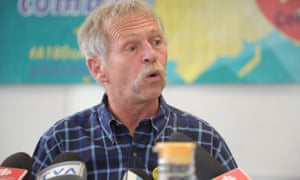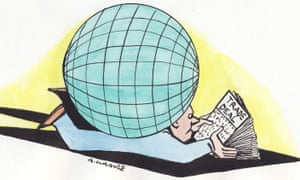The corporations and political elites that have been steering free-trade deals for many years are finding they are losing control. Strong public resistance and opposition from national and regional governments in Europe are throwing the controversial TTIP and CETA trade deals off track.
The Transatlantic Trade and Investment Partnership (TTIP) between the US and the EU has proved deeply unpopular. Across Europe, campaigns to stop it have had a huge impact. Almost three and a half million Europeans have signed the“Stop TTIP”’ European Citizens’ Initiative petition against the deal.
But it’s not just citizens, unions and NGOs who are concerned about the way trade deals seize control from democratic governments and put it into the hands of private corporations. The member states themselves are getting cold feet. A few weeks ago, only 12 of the 28 EU countries were prepared to sign a letter in support of the deal. In the summer, France cast serious doubt on TTIP when its trade minister called for a suspension of talks and the German economy minister declared TTIP “de facto failed”. All this led the EU director-general for trade, Jean-Luc Demarty, to warn that the EU’s trade policy was “close to death”.
Meanwhile, the Comprehensive Economic and Trade Agreement (CETA), a similar free-trade deal between Canada and the EU, is also in deep trouble. On Tuesday, EU trade ministers decided to postpone the decision to approve CETA, leaving the deal in limbo.

European Green MEP and anti-globalisation activist José Bové in Montreal, where he was detained and prevented from speaking against CETA. Photograph: Clement Sabourin/AFP/Getty Images
You can tell the designers of this project are worried. Last week French Green MEP and renowned anti-globalisation activist José Bové was detained by Canadian border officials when he arrived in Montreal to speak against CETA. He was eventually allowed into the country, but his detention prevented him speaking at the event. It seems that for the architects of trade deals freedom of movement for goods and services comes ahead of freedom of expression.
The politicians and corporations might feel they can silence voices but it is harder to ignore votes. And on this, a regional Belgian parliament has delivered a potentially fatal blow. The federation of Wallonia-Brussels parliament, which focuses on the cultural and educational concerns of 4.5 million French-speakers in Belgium, recently voted to reject CETA because of worries about public services and agriculture. Under Belgium’s constitution, all five regional governments must approve the trade deal before the federal government can give consent. And for CETA to be agreed, unanimous support is needed from all 28 EU countries.
The centrist, grey politicians who have mindlessly repeated the mantra of growth-and-trade for decades have become aware that those whose votes they periodically require no longer see these deals as working for them. With tens of thousands of European citizens once again taking to the streets in protest against these trade deals, European negotiators are fighting a losing battle.
All those who have campaigned against TTIP and CETA should take great credit. Despite the power of the corporations that were set to gain massively from the deals, the grassroots movement of people from across the EU, US and Canada have used their democratic rights to protest and to lobby to challenge their might.
While we should celebrate a victory for people power, we must also recognise that this is just the start of the fight. For the UK, either inside or outside the EU, the potential for these damaging trade deals to proliferate remains. Some argued, particularly those “leavers” on the left, that exiting the EU would free us from having to sign up to damaging trade agreements. But actually, it looks as though it is Europe that could save us from these dodgy deals, while the Conservative government, fearing the risk of isolation and desperate for trade deals at any price, will lead us in a race to the bottom. The risk of isolation following the Brexit vote may encourage them to sign us up to even more damaging bilateral agreements than those on offer to the EU.
Globalisation has brought us marvels including the internet and ease of international travel, but the power in this new paradigm has so far been held by corporations that exploit their ability to transcend national boundaries. Perhaps the rejection of the global trade treaties that we Greens have always dismissed as corporate power grabs might mark the beginning of the popular fight to unshackle ourselves from the chains of corporate power. With so much of the energy of the anti-TTIP fight coming from the UK, what a tragic irony it would be if we found ourselves leaping out of the TTIP and CETA frying-pan and into the fire of whatever pro-corporate trade deals Liam Fox has in mind for us.
